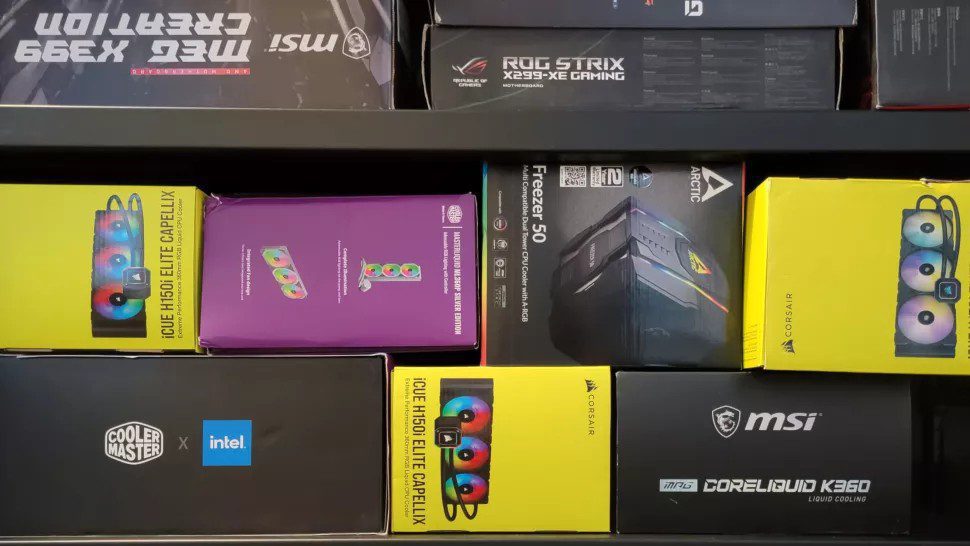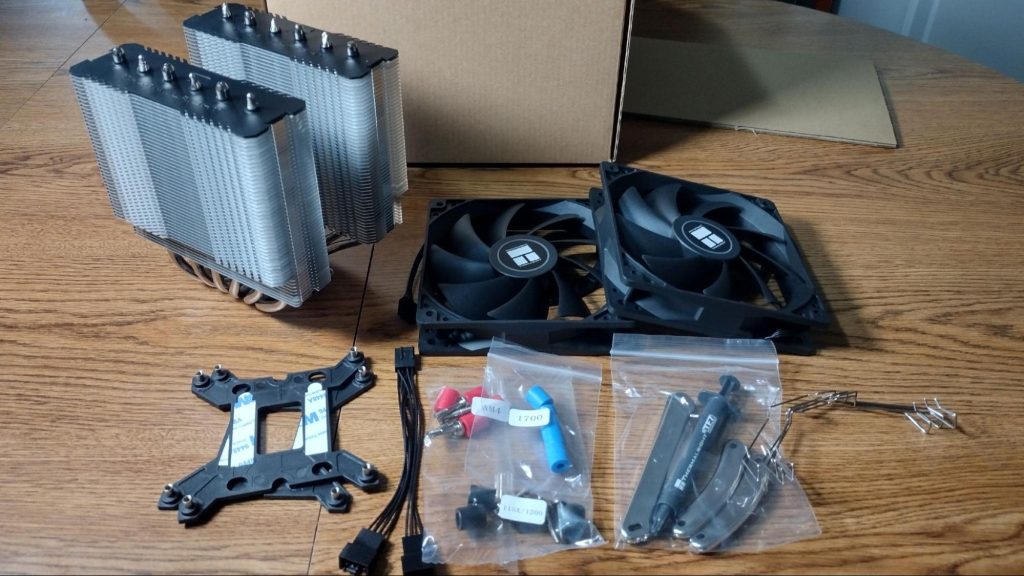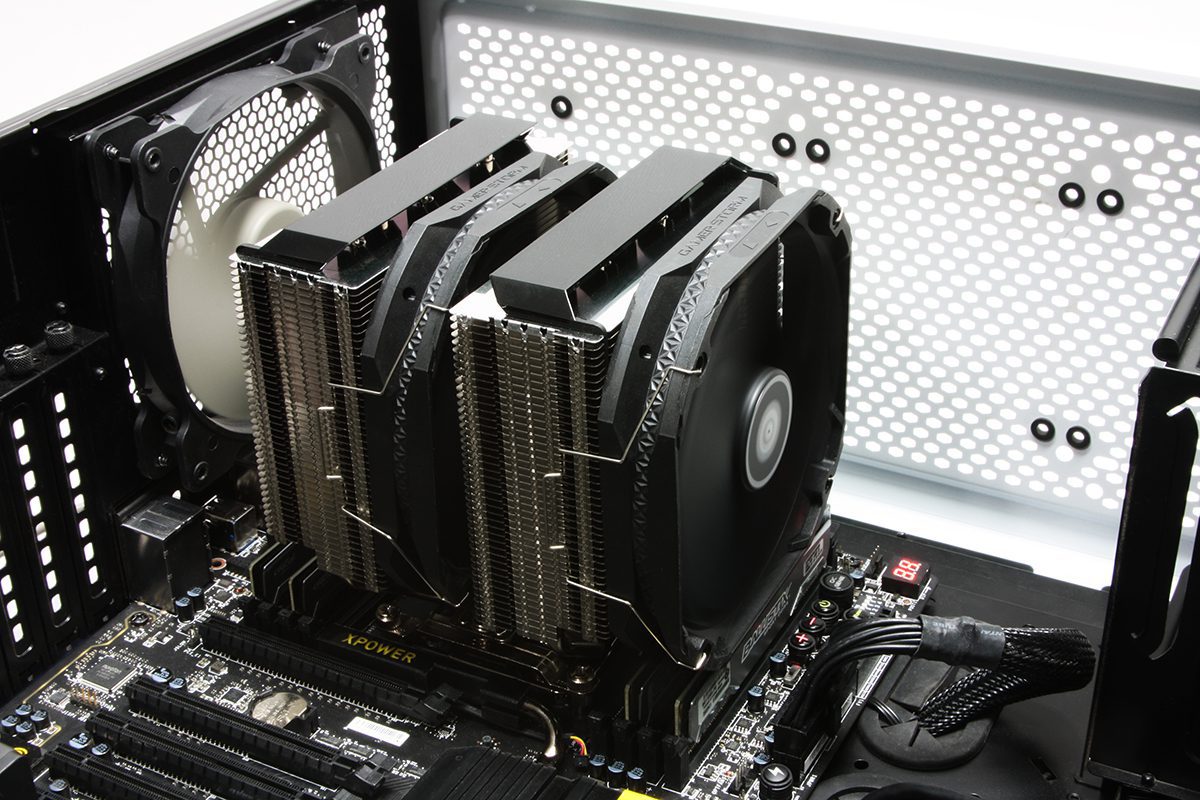Best CPU Coolers 2022: AIO and Air Coolers
The best AIO liquid and air coolers we’ve tested, for overclocked big-rigs, SFF builds and everything in between

Whether you’re after impressive CPU overclocks or just looking to build a PC that’s quiet under load, you should choose your cooler carefully. Picking the best CPU cooler for your processor is a key decision in any CPU upgrade or new PC build. The best CPU cooler will make a major difference in your system’s temps, noise, and even performance — especially if you’re overclocking.
If your CPU cooler can’t keep up with the heat your processor is generating, that may result in lower performance or possibly even a shorter lifespan for your processor–and no one wants that.
Also, don’t forget to consider thermal paste or another thermal interface material (TIM). Most coolers come with some kind of paste, either in a small syringe or packet or pre-applied to the metal cold plate. To make sure you’re getting the most efficient thermal transfer between your CPU and cooler plate, check out the many products we thoroughly tested to find the best thermal paste for your CPU.
11/3/2022 update: We’ve tested some interesting cooling products in recent weeks, including Thermalright’s Contact Frame, designed to correct and protect against the established issue of CPU bending on LGA1700 platforms, and Arctic’s solidly performing and reasonably priced Liquid Freezer II 240 AIO. But at the moment we are hunkered down testing coolers with Intel’s latest flagship, the Core i9-13900K. So stay tuned for a slew of new reviews as we find out what coolers are best for Raptor Lake.
Best CPU Coolers For You
Why you can trust Tom’s Hardware Our expert reviewers spend hours testing and comparing products and services so you can choose the best for you. Find out more about how we test.
If you’re not sure if you want to go the air cooling route (a big metal heatsink with fans) or opt for a liquid-cooled AIO (a pump attached to a radiator and fans), there are a few things to consider. Large air coolers tend to take up more internal space in your PC case, or at the very least they need more vertical clearance off your best motherboard, which can limit your case options. Air coolers can also be louder and less efficient than liquid coolers at moving heat away from your CPU and out of the chassis. These days, though, that’s not cut and dry. If you can go the extreme route, there are fanless air cooling options like Noctua’s Colossal NH-P1 as well for the ultimate truly silent cooling option, although you’ll still need case fans to move the warmed air out of your case.
Air coolers usually cost less than AIOs, though that line is also blurring as AIO coolers are getting increasingly affordable, while high-end air coolers reach toward and sometimes above the $100 range. On the extreme air side of the cooling line, the Ice Giant Prosiphon Elite has an MSRP of $170, which competes with many large AIO coolers. And Cooler Master’s MasterLiquid PL360, an admittedly pretty (and pretty big) AIO cooler, is $190.
If money isn’t a major concern and silent operation and low temperatures are important to you, you may want to consider a custom cooling loop. For more on how these tend to perform (and how good they look), check out our Blue Shift build feature. Just know that custom cooling loops are always much more expensive than nearly all other cooling alternatives, and they can make future component upgrades much more complicated.
Our tested picks for air and liquid cooling options are below. But first we’ll discuss some quick shopping tips to help you choose the best CPU cooler for you.
Quick Shopping Tips
When choosing the best CPU cooler for your needs, consider the following:
- Own a recent Ryzen CPU? You may not need to buy a cooler, but it depends on the model. Most Ryzen 2000 and 3000-series processors and some older Ryzen models ship with coolers, and many of them can handle moderate overclocks. But Ryzen 5000 CPUs don’t ship with coolers in the Ryzen 7/9 range. AMD’s first Ryzen 7000 don’t ship with coolers, although previous-gen AMD coolers will work. If you want the best CPU clock speed possible, you’ll usually want to buy an aftermarket cooler anyway. But for many Ryzen owners who don’t plan to push their silicon to the limit, the best CPU cooler might just be the free one in the box or one you already have from a previous build.
- If opting for a large air cooler, be sure to check clearances before buying. Big coolers and low-profile models can bump up against tall RAM and even VRM heatsinks sometimes. And tall coolers can cause clearance issues with your case door or window. Be sure to check the dimensions and advertised clearances of any cooler you’re considering and your case before buying.
- Remember that, all else being equal, more fans equals better cooling, but more noise. The coolers that do the best job of moving warm air away from your CPU and out of your case are also often the loudest. If fan noise is an issue for you, you’ll want a cooler that does a good job of balancing noise and cooling. If you can set your cooler’s fan speeds based on temperatures in your motherboard’s BIOS, that should also help.
For much more detail on how to choose the right cooler (and cooler type) check out our 2022 CPU cooler buying guide.
The Best Air Coolers You Can Buy Today


